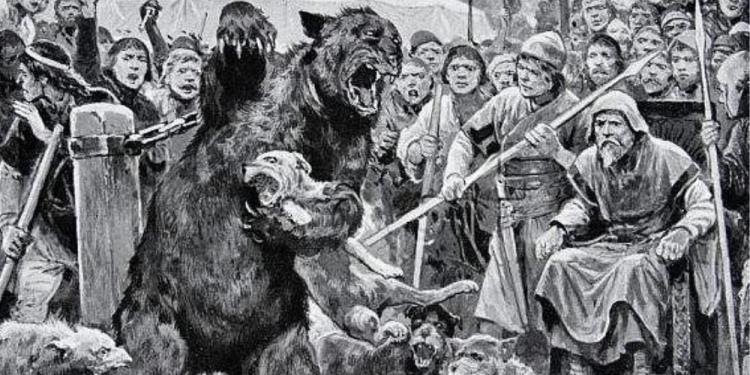Bear Baiting Bets: A History of Blood Sports in Elizabethan Times
Posted: December 9, 2019
Updated: December 19, 2019
-
Good clean fun for all the family
-
Bears were rarely killed
-
Bulldogs haver no purpose

Bear baiting bets In Elizabethan times kept everyone entertained. In Macbeth, there is a stanza he speaks to his enemies: “Have tied me to a stake; I cannot fly, But, bear-like, I must fight the course.” Today this holds little meaning. But in the year of the play, 1606, if one were to take a short walk from Shakespeare’s own Globe Theater, you would find the “Bear Gardens”. This was where dogs, bears, bulls, chimps and other creatures had to fight to the death in front of roaring crowds, many of whom were gambling on the outcome.
Introduction: Bear Baiting Bets
One of the most enjoyable past times four hundred years ago was to take the kids and go and see the “bear baiting”. Animal blood sports, along with the theater, were a part of popular entertainment culture during the 16th and 17th centuries.
In London, many of the arenas were in the Bankside district, across from the City of London on the southern banks of the River Thames in Southwark. Because this was technically outside the city limits, it was a haven for prohibited activities, like gambling and prostitution. Today you can gamble at these online gambling sites in the UK. Or even on “ethical” bullfights.

Bear Baiting Bets: Ready, Teddy, Fight!
The most popular sport was bear baiting. This dates back to medieval times. For this, the bear was led to the center of a pit and then chained either by neck or leg to a stake. Then punters would place their bear baiting bets. If only they had the Internet…they could of used Unibet Casino. Packs of dogs (usually bulldogs or mastiffs) were then let go and the fun could begin.
The Elizabethan court official Robert Laneham wrote of a 1575 bear-baiting, “It was a very pleasant sport to see”. He continued, “To see the bear, with his pink eyes, tearing after his enemies’ approach…with biting, with clawing, with roaring, with tossing and tumbling, he would work and wind himself from them.”

Winnie-The-Poo Kills His Friends
Because it was very expensive to import bears, it was important they didn’t die. To that end, the contest was over when either many dogs had been killed or the bear was beaten into submission. Some of the bears even became minor celebrities and carried names such as, “Ned Whiting,” “Harry Hunks” and “Blind Bess.
The famous bear, “Sackerson”, even saw mention in Shakespeare’s “Merry Wives of Windsor.” Queen Elizabeth I was a bear-baiting fan, as was King James I. The latter hosted shows involving polar bears and lions borrowed from the Tower of London’s menagerie.

Bear Baiting Bets: If It Bleeds, We Can Bait It
But blood sports were not just the baiting of bears. The blood soaked arenas saw all manner of animals laid to waste. There was badger-baiting, rat-baiting, cock fights and dog fights. The whipping of blind bears was hilarious as was the chaining of monkeys to horses so baying dogs could chase them. Bulls tossed dogs airborne to the whoops of the spectators. It was a belief that fighting would make the bull’s meat more tender. Unfortunately, there’s always someone who has to ruin the fun.
Puritan ministers condemned such spectacles, not due to any animal welfare concerns, but because the spectators were enjoying themselves. They describes the bear pits as “dens of idleness and vice.” They said that these games encouraged gambling, with bear baiting bets, along with drunkenness and prostitution. Sounds good to me. Not surprisingly we later shipped those killjoys off to America. Shame we couldn’t antagonize those Puritans more with these online gambling sites in the UK.

Sad Ex-Bulldog Says All Good Things Come To An End
England’s obsession with blood sports continued unabated (nice pun!) throughout the 1600’s. Luckily not with gambling. Check out Unibet Casino. Over the next century, it’s star was gradually on the wane as people became more aware of animal cruelty. In 1835, all animal baiting and cockfighting was banned by law following an act of Parliament. Today even dog racing is coming to an end. But in South London you can still find a “Bear Gardens” and “Bear Lane”. And of course, the breed of dog called “bulldog”, is also a reminder of England’s bear-baiting past.











